Menu
‘Caribou’ – Bonus Tracks and More
To celebrate today’s Record Store Day release of Elton John’s eighth studio album, Caribou, 2LP Special 50th Anniversary Edition, we are very happy to provide details on its bonus tracks…
…followed by an exclusive interview with Caribou Ranch Recording Studio Manager John Carsello, who spoke with EltonJohn.com in February 2024, on the making of the album.
Find your local participating record store for the limited edition sky blue Caribou 2LP vinyl.
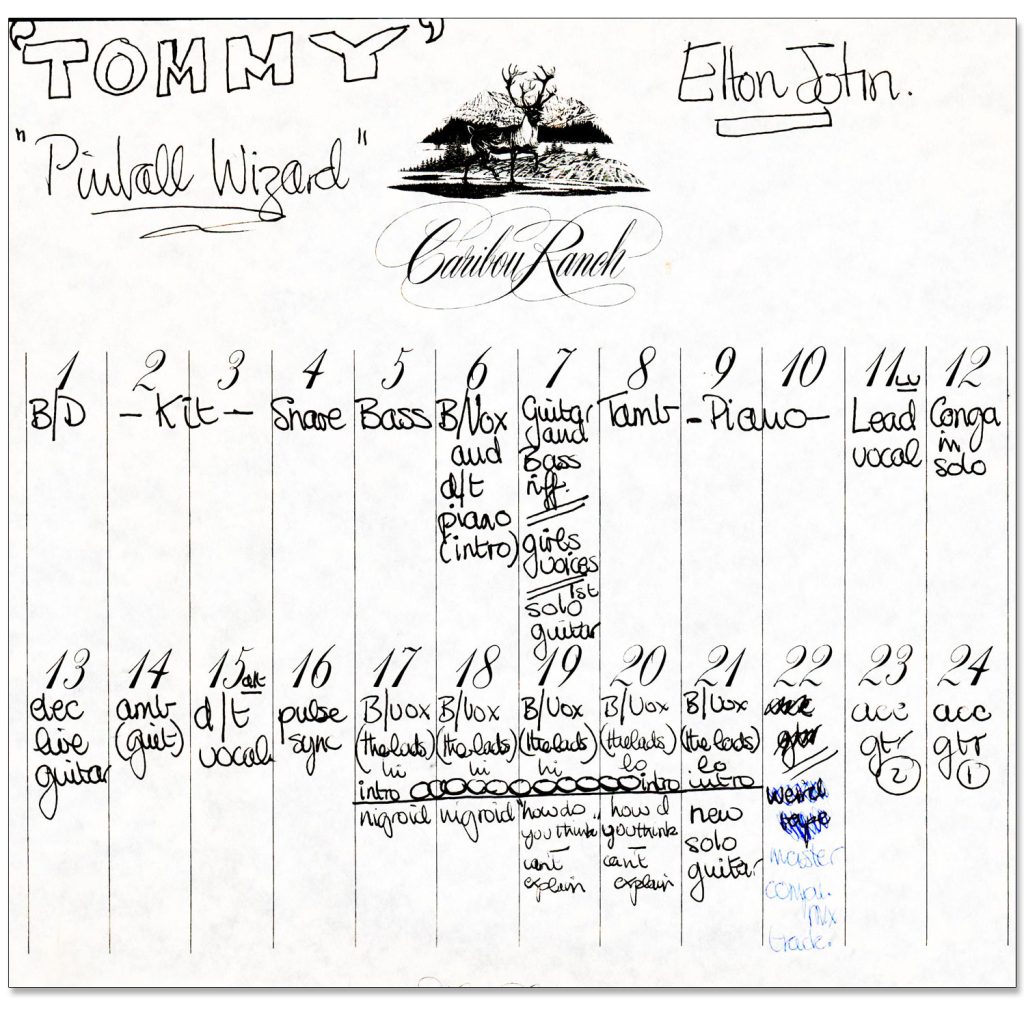
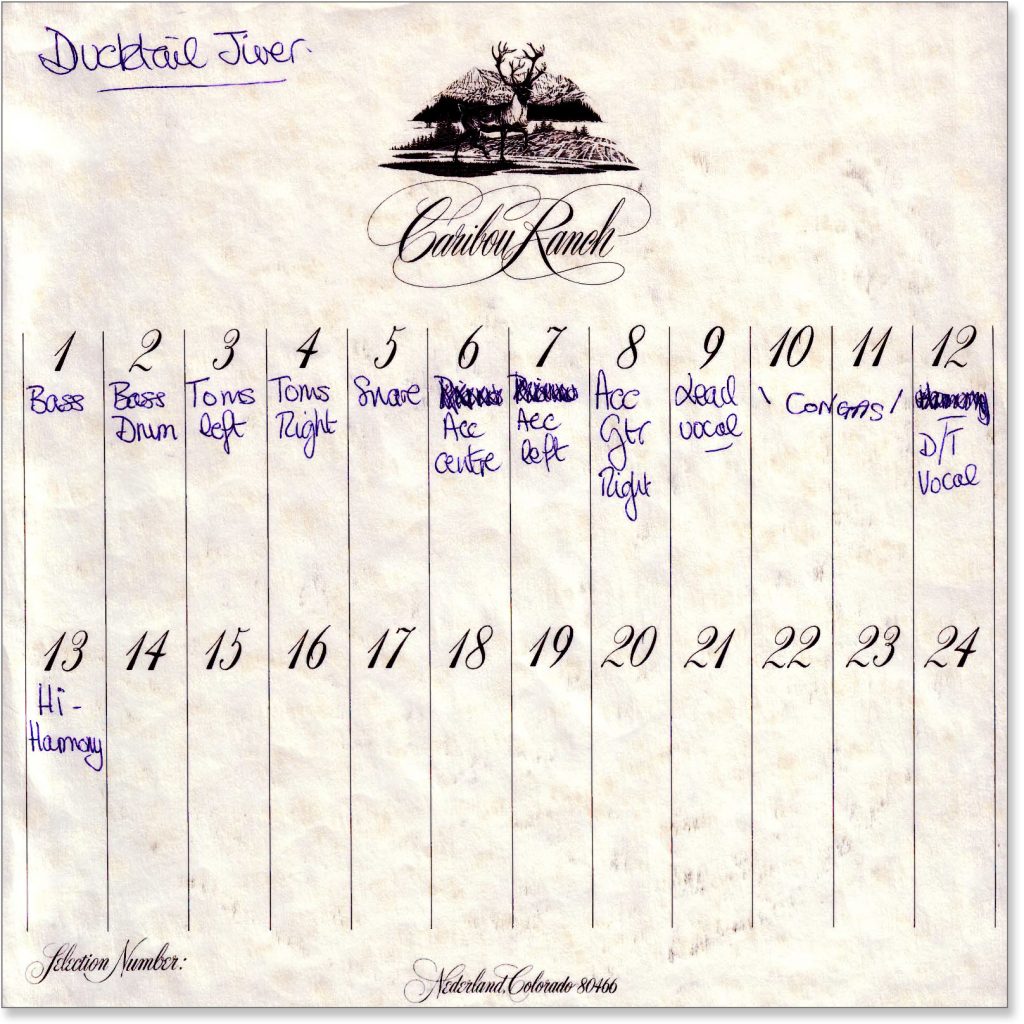
“CARIBOU” ANNIVERSARY EDITION BONUS TRACKS DETAILS
Side 1
★ PINBALL WIZARD
Recording
April 19, 1974 at Ramport Studios, London, England
Full day
First appearance
‘Tommy’ Original Soundtrack Recording
Musicians
Elton John: piano, vocals / Nigel Olsson: drums, backing vocals / Dee Murray: bass, backing vocals / Davey Johnstone: electric guitars, acoustic guitars, backing vocals / Ray Cooper: tambourine, congas
Listener’s notes
Astute listeners will notice the backing vocalists singing some of I Can’t Explain during the first guitar solo. This in-joke is because Elton and the band were covering one of The Who’s songs, with its composer Pete Townshend in attendance, in that band’s studio in Battersea.
★ THE BITCH IS BACK (New Radio Mix)
See here for recording details
Listener’s notes
This compressed version of the hit single starts with a longer count-in on the hi-hat before the main guitars kick in and ends with a longer jam before the fade-out (we are now taken to the very end of the song, an instant before the band stops playing). It also runs a little faster than the 1974 version and dramatically lowers the horns, except for Lenny Pickett’s tenor saxophone solo, in the mix, leaving more room for the piano to be heard – especially in the outro section. Some overdubs that are lower in the original mix are more front and center: Dee Murray’s phased Pignose bass and a pair of out-of-phase guitars from Davey Johnstone that were plugged directly into the console, as opposed to the traditional mic’ing off the amplifier. The New Radio Mix feels, as a whole, more gritty and dirty than the album or original single version.
★ DUCKTAIL JIVER
See here for recording details
First appearance
Caribou 2LP Anniversary Edition (Record Store Day 2024)
Listener’s notes
Here we have the debut release of the only true out-take from the Caribou sessions in January 1974. Long sought after by avid Elton collectors, the song is notable as being one of the few in Elton’s catalog on which he does not play any keyboard instrument. It is also unique in that it does not have an actual solo, as the song development was halted before an instrument could be chosen and recorded, leaving Davey’s acoustic guitars to carry that section, which begins at 2:25.
★ SICK CITY
See here for recording/release details
Listener’s notes
Album producer Gus Dudgeon (1993): We tried doing the backing vocals backwards. We spent a hell of a long time on it and it was a complete waste of time. They had to learn what “sick city” sounds like backwards. We recorded it forwards, then we turned it around and listened to it. And it was coming out, “ahyiscus … ahyiscus …” So they were trying to sing “ahyiscus” all together. It’s difficult enough to get three people to start and end at exactly the same point in any one phrase in the best of times. But when it goes [slurring] “ahyuh”? When it has to fade in? Nightmare. We were trying to get it to sound like it was some kind of, you know, “sick city” weirdness. That was an experiment that didn’t work.
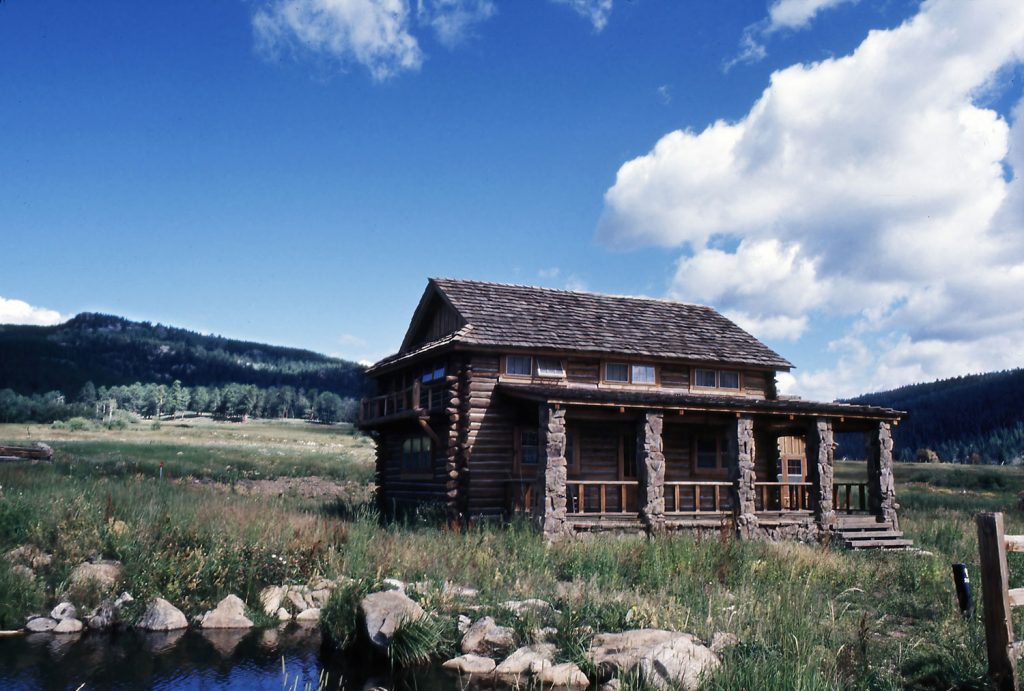
A cabin at Caribou (photo: Ron Bostwick)
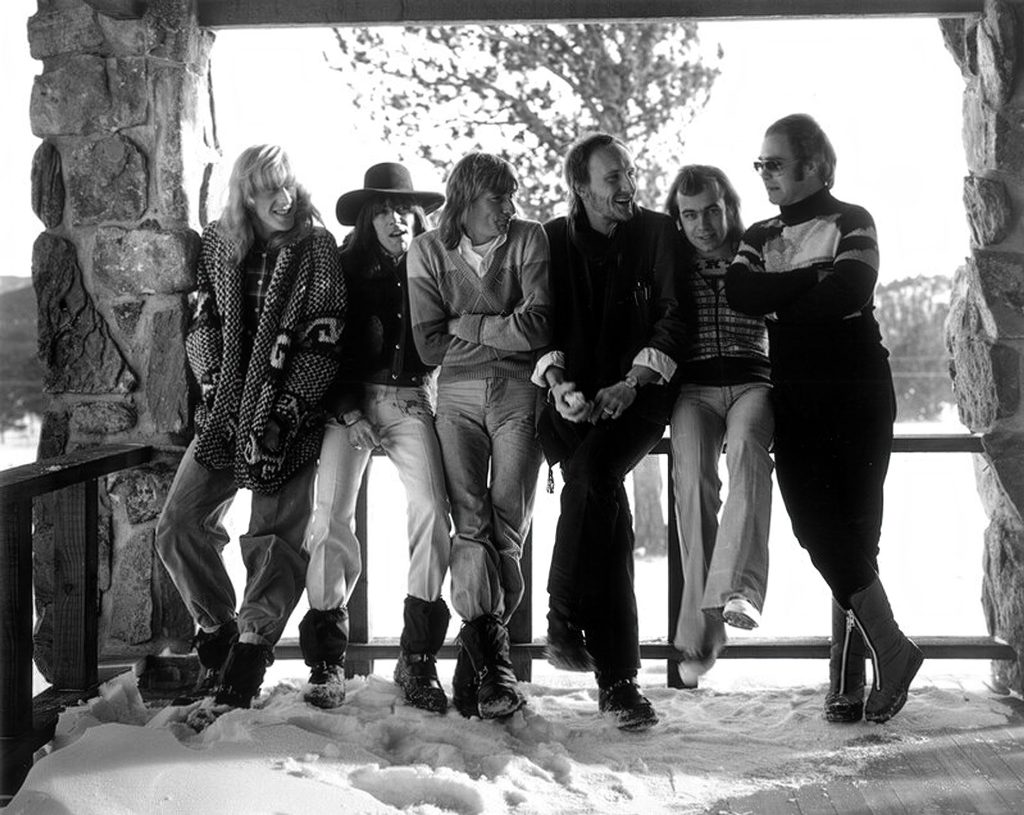
(l-r) Davey, Nigel, Dee, Ray, Bernie, and Elton at Caribou in January 1974. (photo: Sam Emerson)
Side 2
★ COLD HIGHWAY
See here for recording/release details
Listener’s notes
This b-side to The Bitch Is Back was the first song written at Caribou but the last song recorded for the album.
★ STINKER (Extended Version)
See here for recording details
First appearance
Caribou 2LP Anniversary Edition (Record Store Day 2024)
Listener’s notes
This mix extends the original release by 1:20, revealing a dynamic jam that shows Elton and the band at their best. It should be noted that producer Gus Dudgeon had the Tower of Power horn section add their parts, which were recorded in Los Angeles after the Colorado sessions were done, to the entire track so that he could determine later when the song would fade out.
★ SNOOKEROO (Demo)
Recording
June 6, 1974 at Brother Studios, Los Angeles, CA
Morning session
First appearance
Caribou 2LP Anniversary Edition (Record Store Day 2024)
Musician
Elton: piano, vocals
Listener’s notes
This is the first demo release of a song that Elton and Bernie wrote expressly for Ringo Starr and was subsequently re-recorded with a full band, including Elton on piano (and count-in!), for his 1974 album, Goodnight Vienna.
Caribou Studio Manager John Carsello
“We had some huge acts up at Caribou: Chicago, which was ‘our’ band [Studio founder James Guercio managed and produced them], Rick Derringer, Edgar and Johnny Winter, Dan Fogelberg. But having Elton up there was really great! He was such a star at the time.
“I’ve seen Elton in concert probably 20 times. We went to an Elton show and I remember the promoter saying, ‘Well, you know, no one’s [allowed] backstage.’ I said, ‘Yeah, but I’m with Caribou.’ ‘Oh, okay. The only people that are allowed backstage are people from the Caribou Ranch.’ And Elton shook everyone’s hand that had worked at the ranch. This was sometime in the 2010s; a long time after [Elton recorded at Caribou].
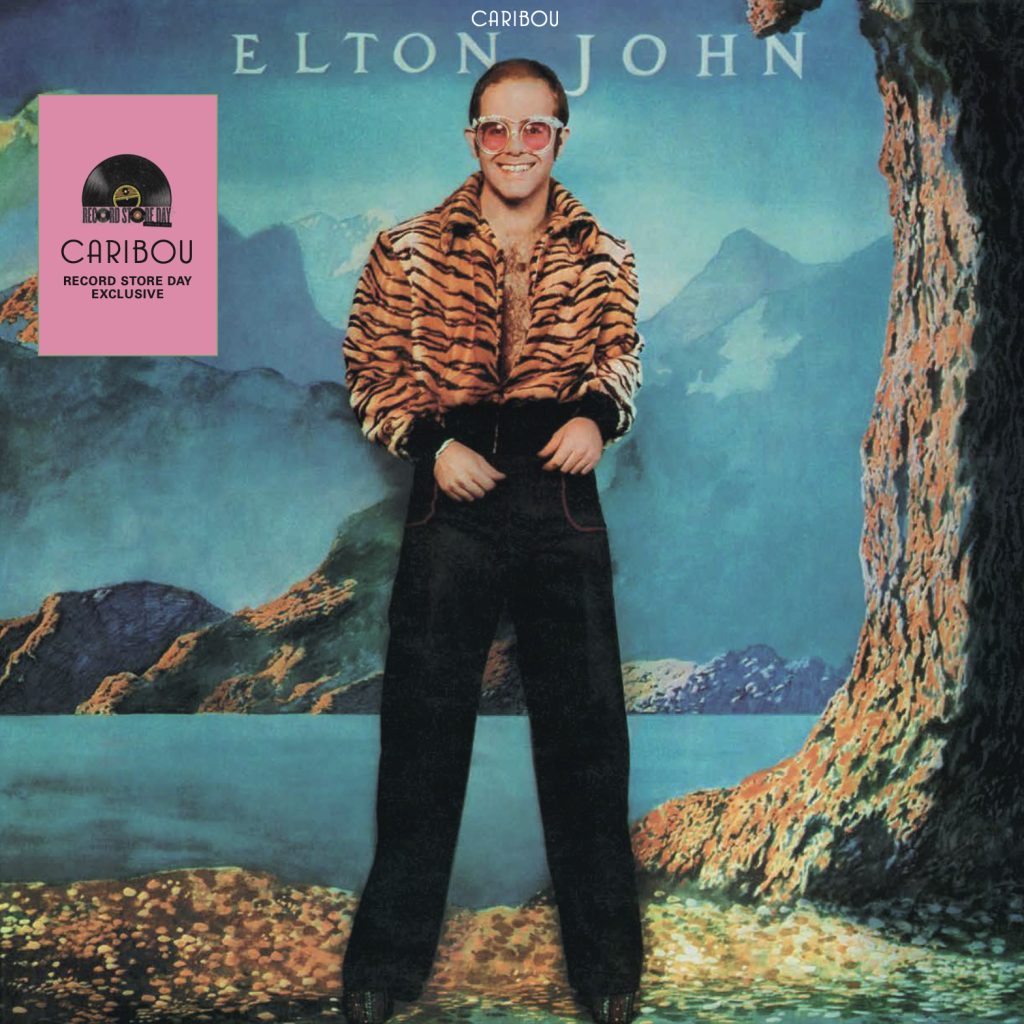
“They helicoptered in to see the studio some months before. Elton’s managers contacted our management company in LA. Then he called Jimmy Guercio and me up at Caribou. And he goes, ‘Yeah, Elton John wants to come in. They’re going to play Denver but they have a day off to go down there and meet them and bring them up to Caribou and show them the studio.’ So, I had to sell them the studio once they were up there!
“I played them Rick Derringer’s Rock & Roll, Hoochie Koo. I’ll never forget it. We had it blasting in the control room, and I remember Elton saying, ‘Was this whole song done up here?’ I said, ‘Yeah, it was.’ And he goes, ‘That’s the sound I want!’ And he came out with a very rock-and-roll album. The first song I heard was The Bitch Is Back. And it was like, ‘Oh, my God, this is incredible, man.’
“I remember Elton talking about the altitude and how he couldn’t get his breath. Elton was doing vocals and he comes into the control room, and I said, ‘How’s it going?’ He goes, ‘Well, everything’s great…but Jesus I’ve got to get [the vocal] on the first or second take because I’m out of breath!’ I said, ‘Yeah, the altitude, man.’ When Jimmy bought the ranch, we didn’t even realize that altitude meant something like that. We were learning to being up there ourselves. We didn’t know what the thinner air would do. It was after [Elton’s sessions] that we had oxygen tanks available.
“Just walking from the studio to the mess hall, you were actually walking uphill. And your breath was like, ‘Oh, Jesus.’ Your heart’s pumping. Just from walking at that altitude. And the wind would be blowing 100 miles an hour. I said, ‘What did you do, Jimmy? Buy the ranch when it was spring?’ We didn’t know that in the winter that we’d have 100 mile an hour winds with three feet of snow on the ground…and then you’re driving into a snow drift. It was nuts! So, we bought 30 or 40 parkas. We had to give Elton and everyone parkas, snowmobiles, snowmobile boots, snowmobile pants, ski pants, hats, gloves…
“My office was in Elton’s guest house. There was a laundry room in between where he lived and my office. So, I would close both doors…or I would open my door, but his door was closed. I could stand in there and listen to him rehearsing. I could hear him in there, just singing at the top of his lungs, writing and rehearsing. And my secretary and I would be going, ‘Can you believe this??’
“Elton worked a lot. He wrote songs so fast. I swear to God, I could hear him in there and he would write the music for a song in15 or 20 minutes. That’s how fast he was. An incredible musician. Oh my God. I could hear him pounding on that piano. You know, it was, it was just so incredible to hear something like that.
“I remember Bernie would leave Elton the lyrics, on like notebook paper. And sometimes when they weren’t in Elton’s cabin I’d go in and pick up the notebook paper. Here’s, you know, The Bitch Is Back, or whatever. Don’t Let The Sun Go Down On Me. I mean, I’m reading these lyrics on notebook paper that Elton would just leave on the coffee table. It was so wild!
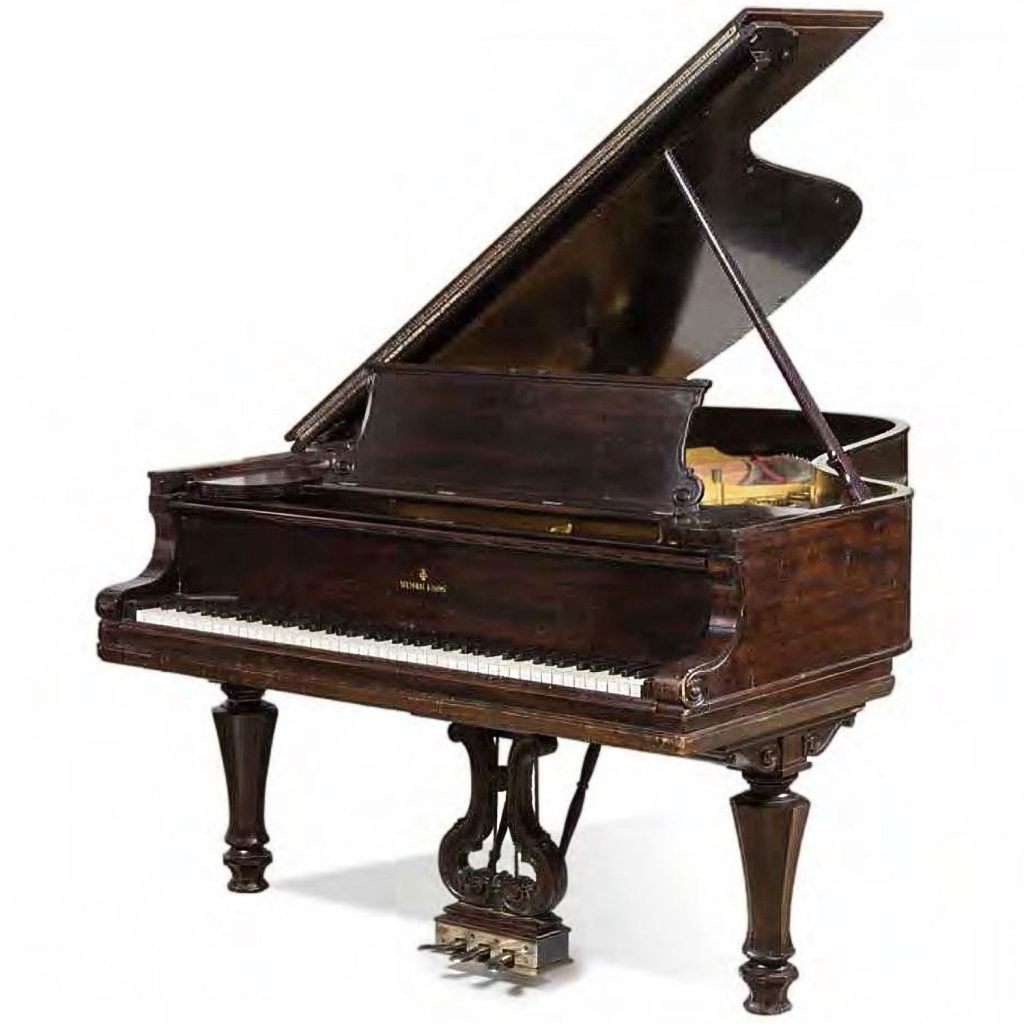
The Steinway Grand that Elton recorded on at Caribou Studio
“We had three pianos. A Bösendorfer that we used for classical and some jazz albums; Elton didn’t use that at all.
One Steinway grand was used for all the rock and roll songs; it was from CBS Studio B, in New York. It was used in the Benny Goodwin Orchestra and belonged to Bessie Smith and was used at CBS by lots of big acts: Bob Dylan, Carole King, Barbra Streisand…you name it.
Then we had another Steinway (made of maple…or rosewood) that we used for Don’t Let The Sun Go Down On Me and other ballads. We called it the “Bridge Over Troubled Water” piano, ‘cos that Simon & Garfunkel song was recorded with it!”
Gus Dudgeon (1993): By the time we got to Caribou, we had the piano mic holder down to a fine art. In Caribou, which was the third one we built, we actually had a thing with magnets. So the piano tuner could get at it (because otherwise normally the piano tuner would have to take the whole thing off and move the mikes, which was no good). You pulled out the front, in front of where you sat, and it had a strip light in it so you could put the music up at an angle. They actually had a built-in music stand in this frame, and you’d just clip this out and you could put your hand in and tune the piano and then clip it back in again. The mics stayed exactly where they were. I remember, after Jimmy Guercio saw this, he said, “That’s brilliant. I’m going to keep that. That’s a real relic.”
John Carsello: “It was really cool that Elton booked our studio, not just for Caribou, but for two more albums. And naming the album Caribou was like, ‘Are you kidding me??’ Man, that really put us on the map!”
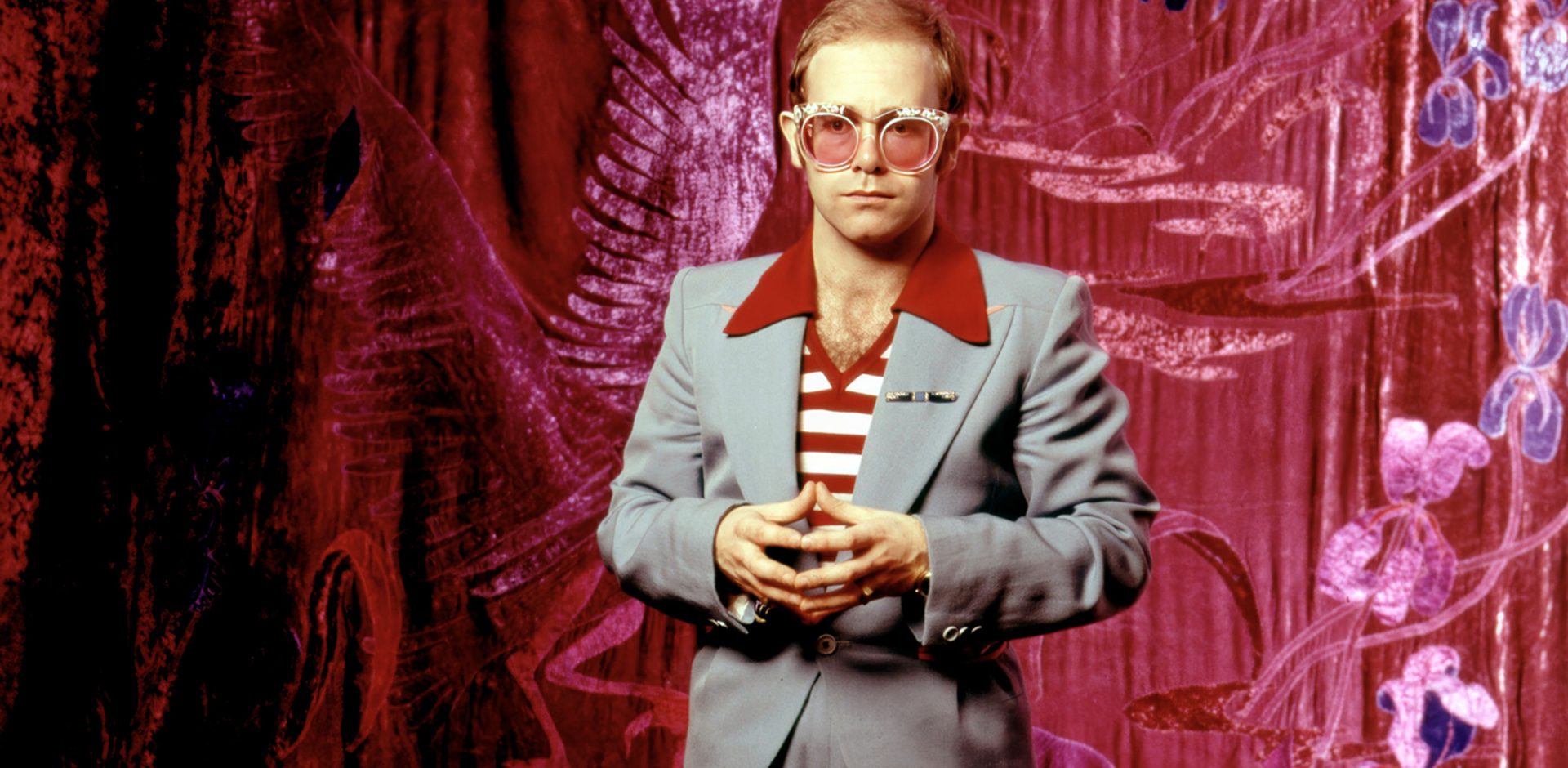
Out-takes from album photo session (photos: Ed Caraeff).
1 / 6
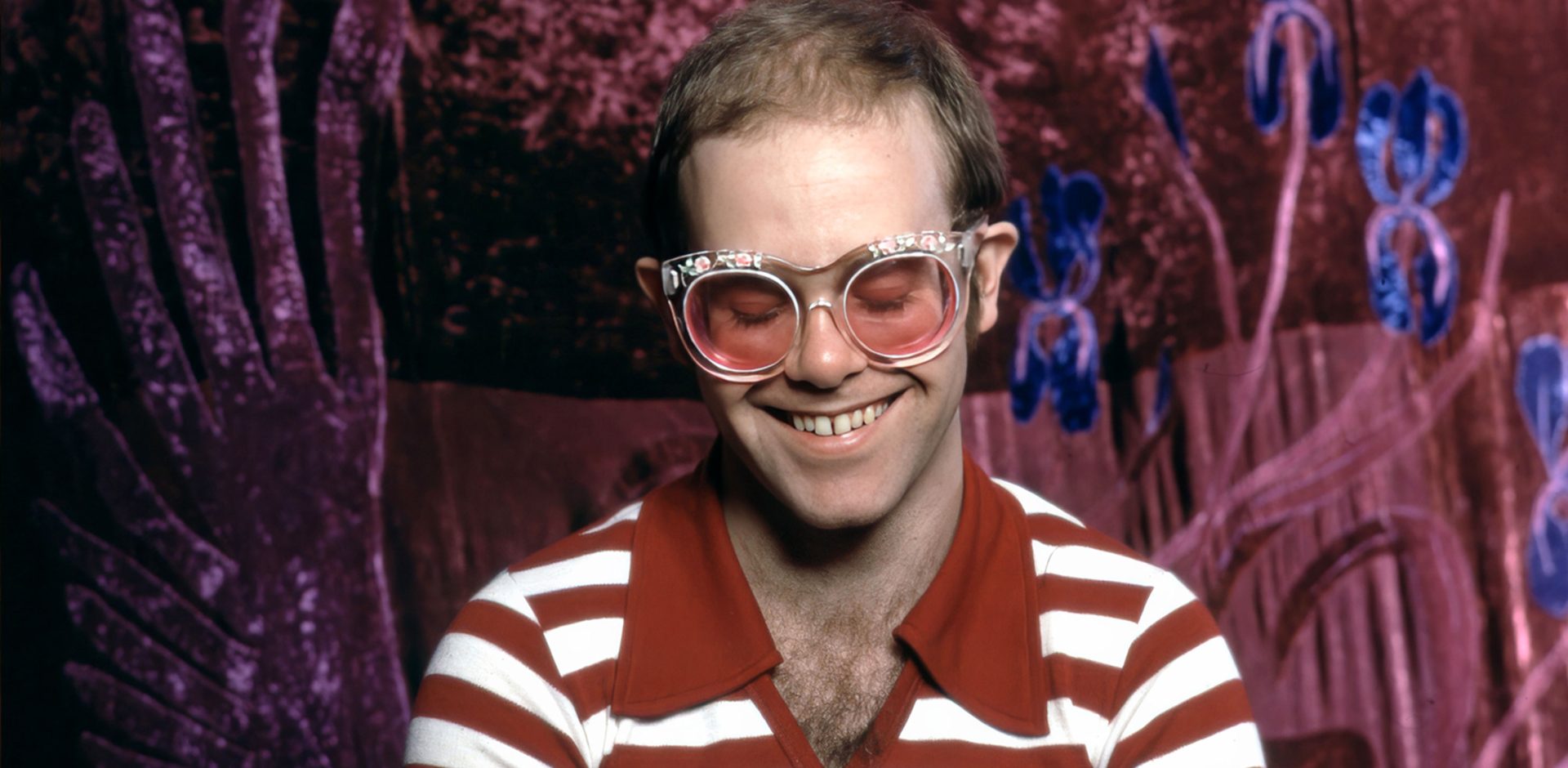
Out-takes from album photo session (photos: Ed Caraeff).
2 / 6
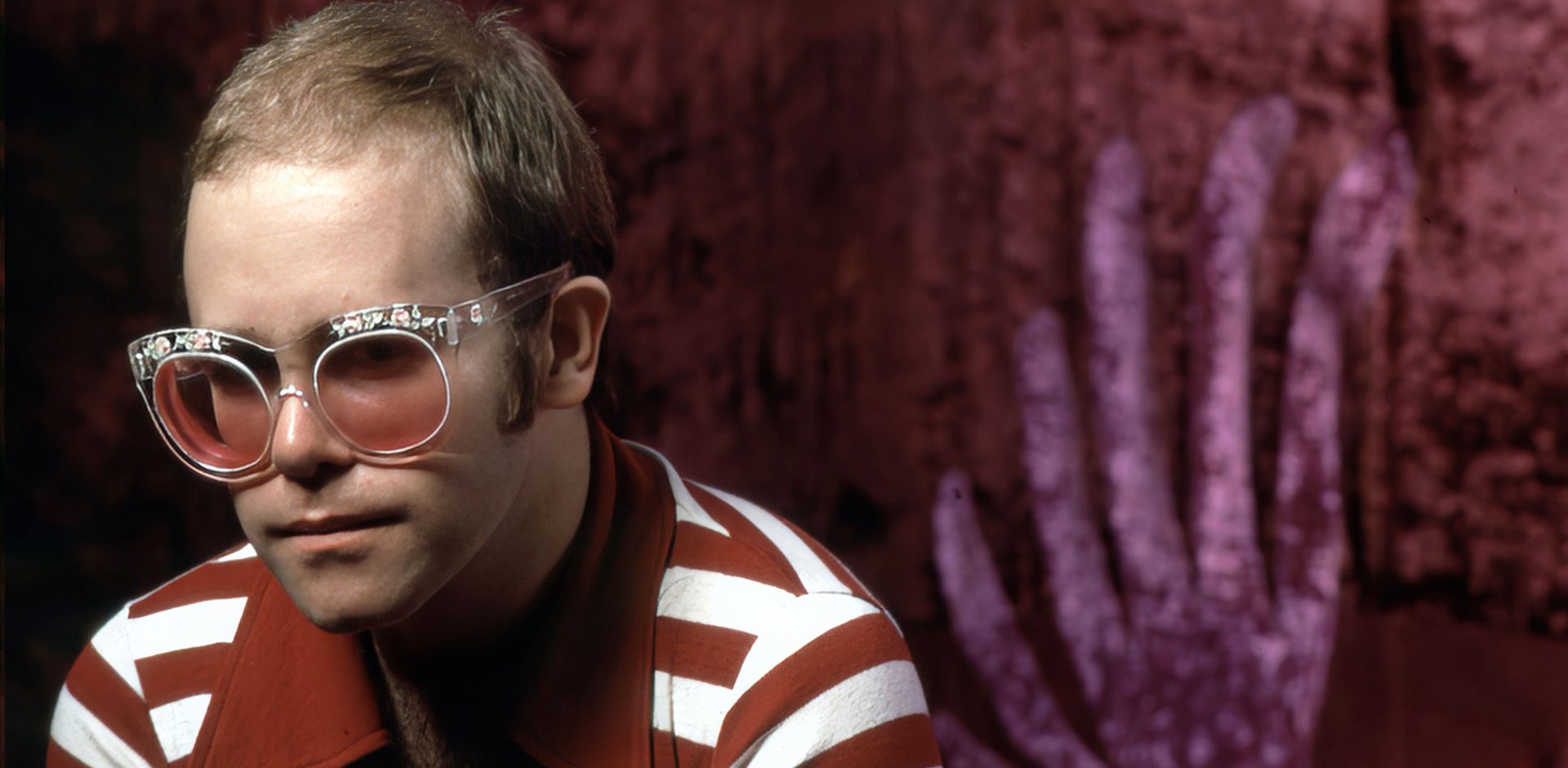
Out-takes from album photo session (photos: Ed Caraeff).
3 / 6
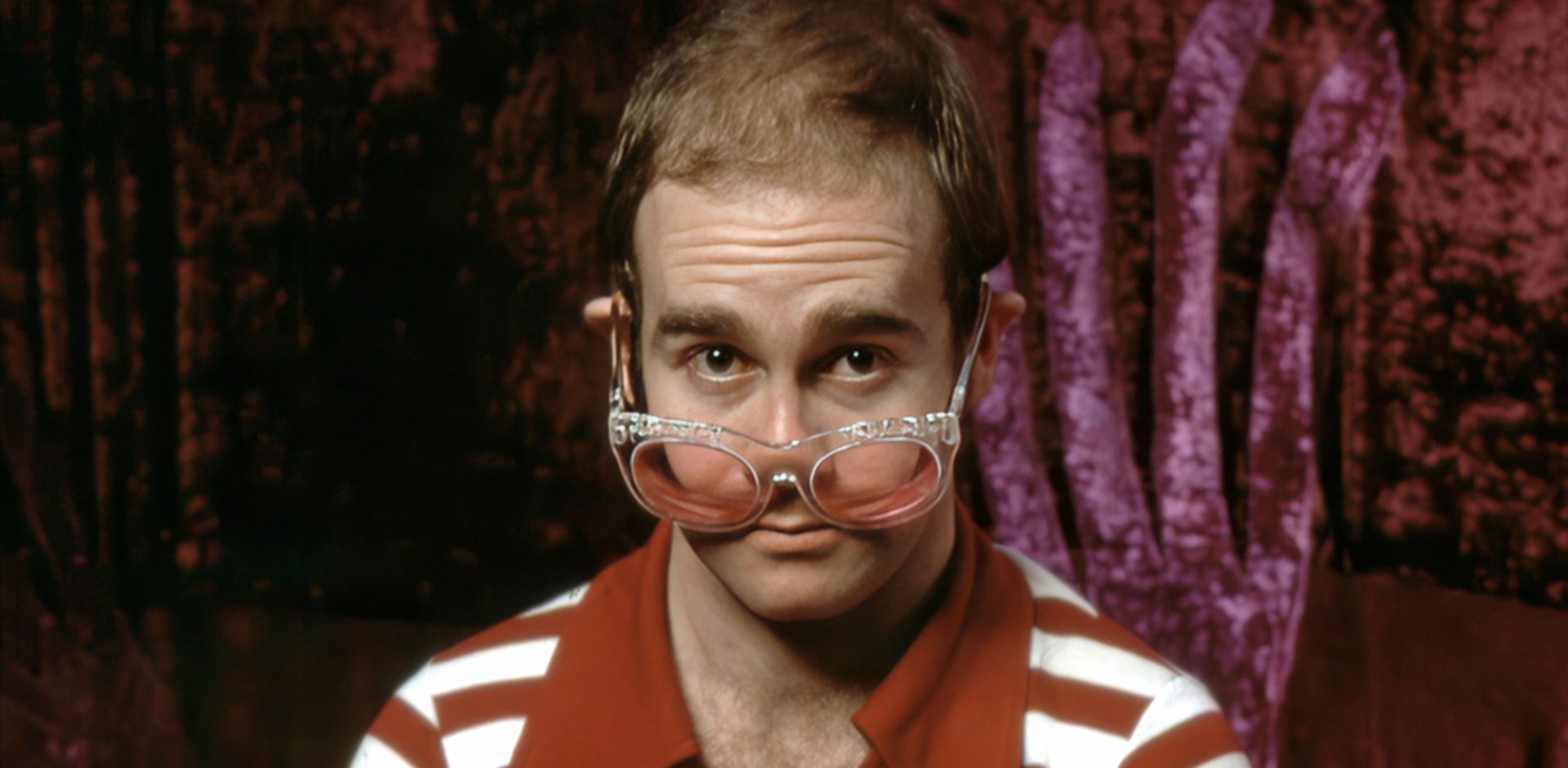
Out-takes from album photo session (photos: Ed Caraeff).
4 / 6
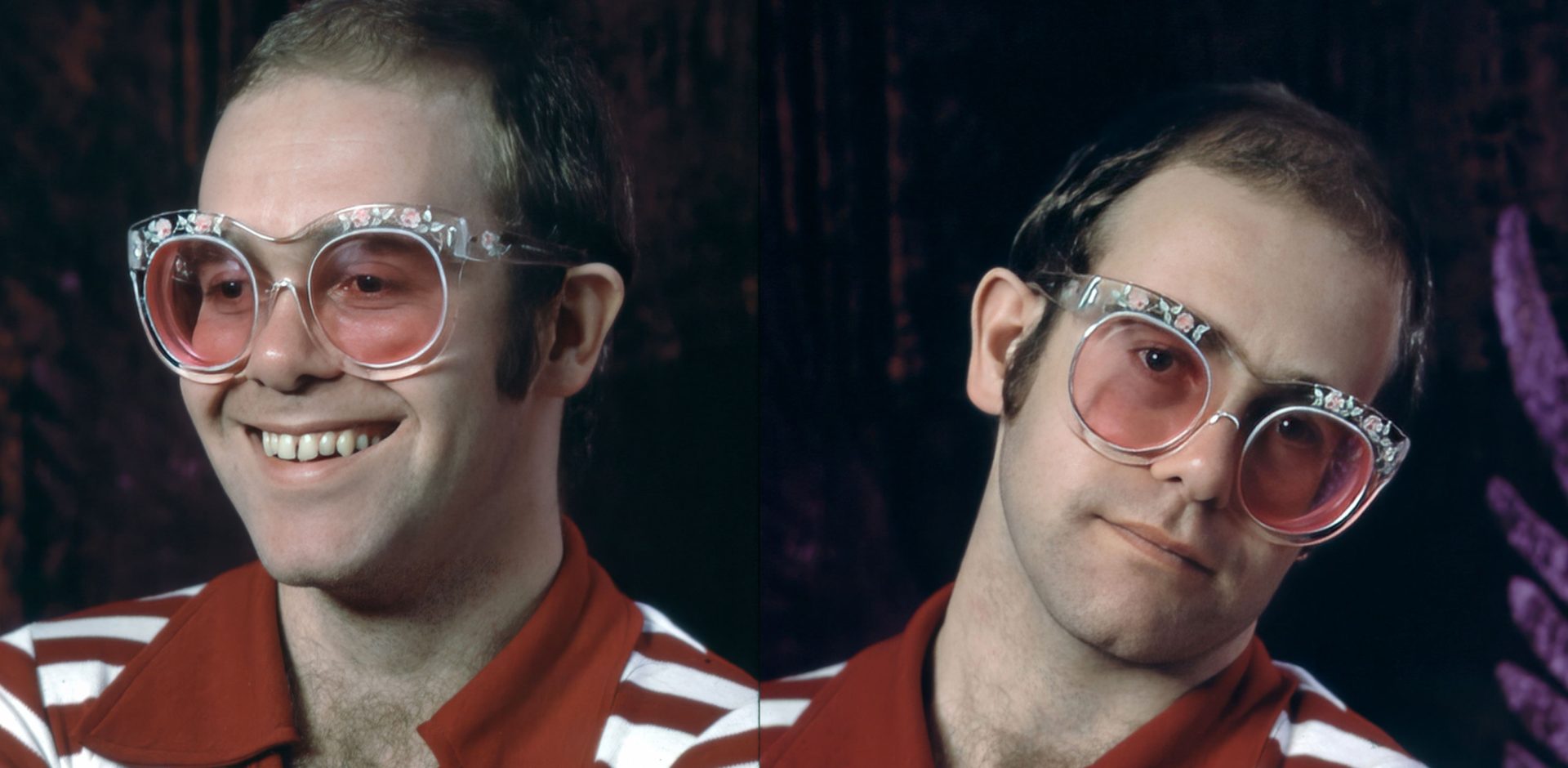
Out-takes from album photo session (photos: Ed Caraeff).
5 / 6
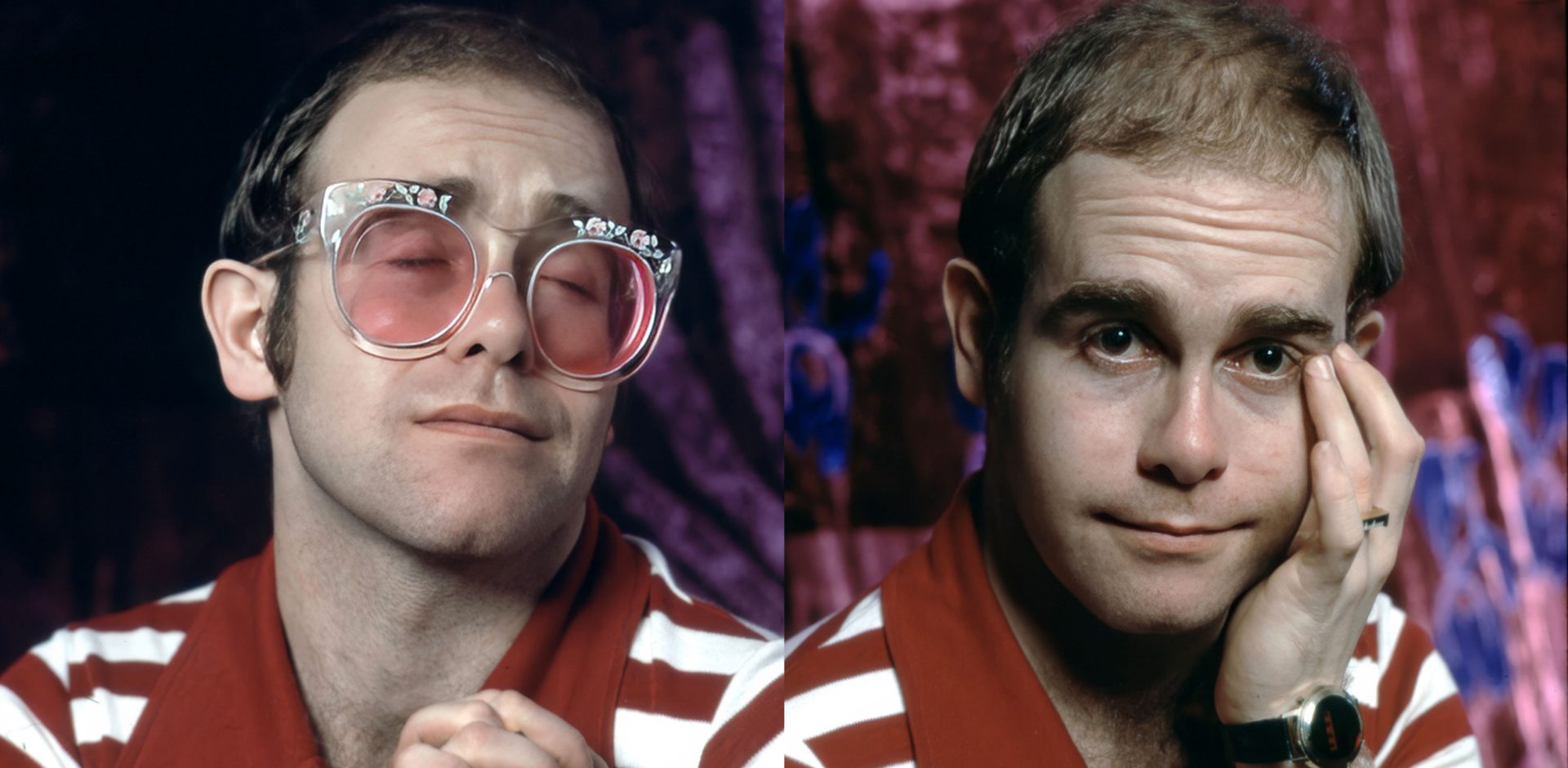
Out-takes from album photo session (photos: Ed Caraeff).
6 / 6
